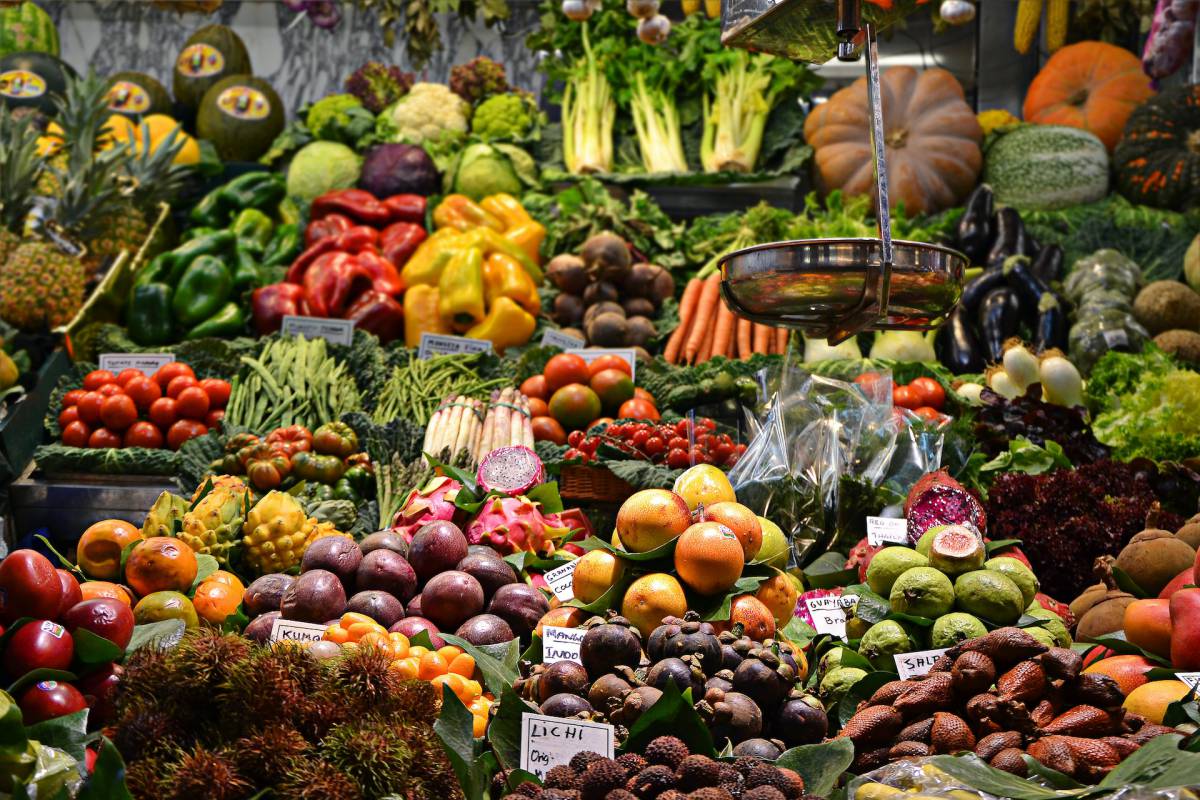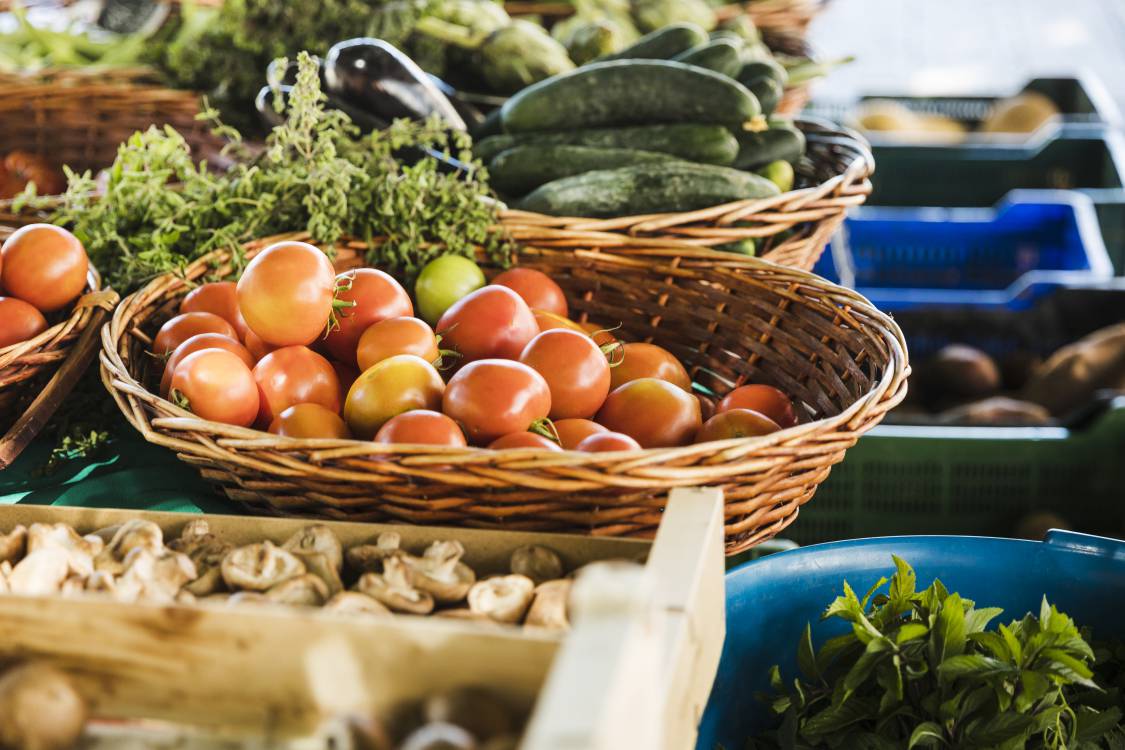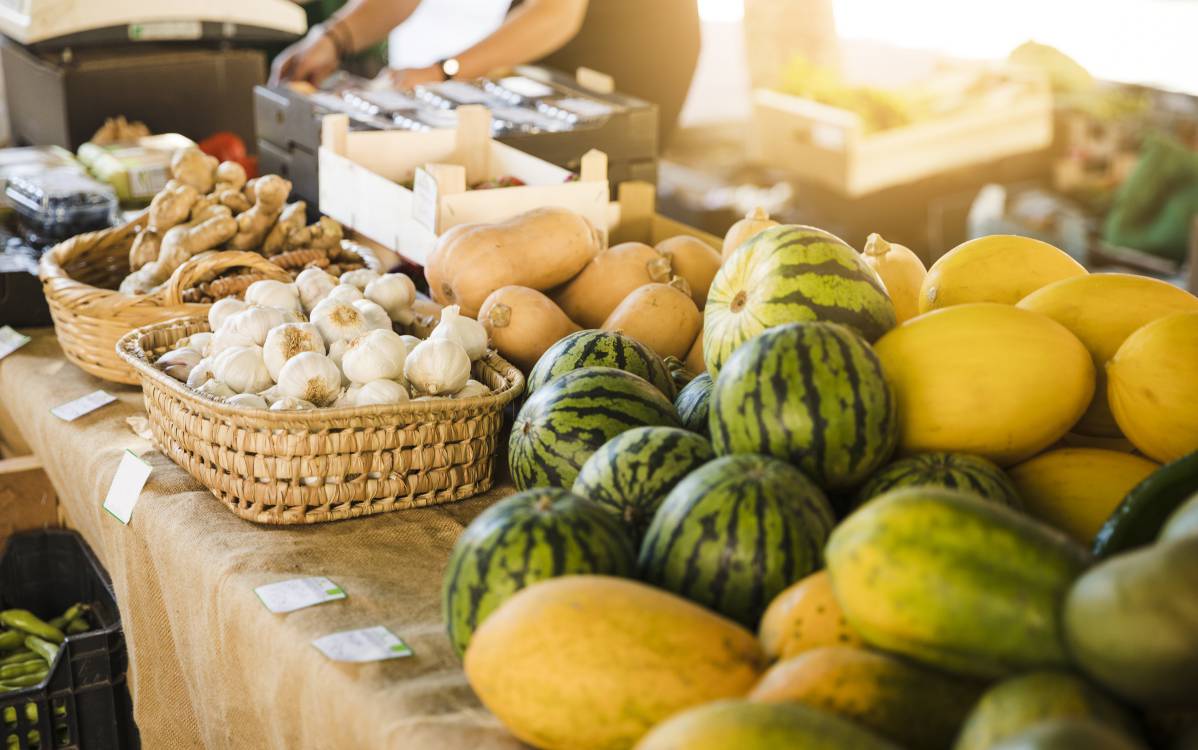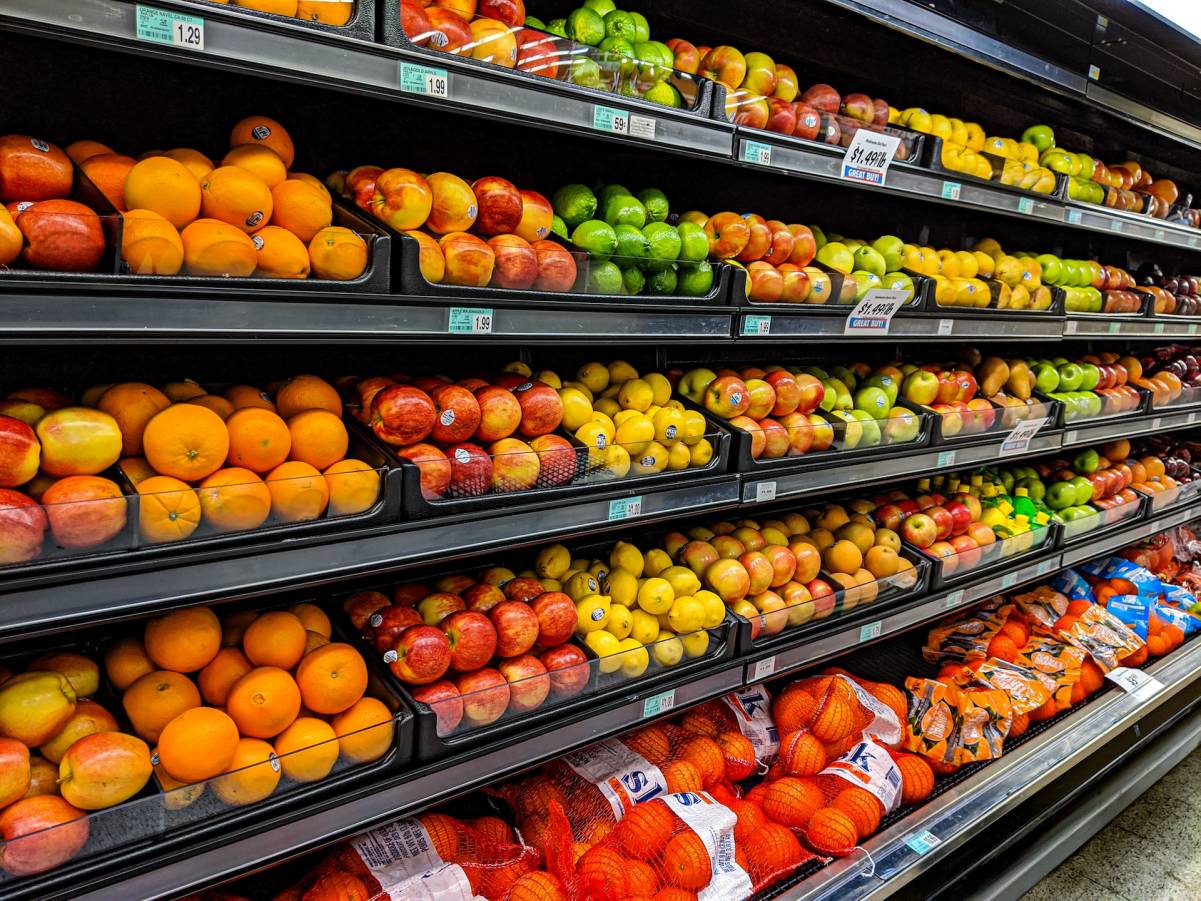Plant-forward is all about prioritizing plant-based foods while still leaving room for some animal products. Unlike a strict plant-based diet that completely eliminates animal-based foods, plant forward eating focuses on rebalancing the amount of whole, minimally processed plant foods you eat relative to animal products.

A plant-based diet can bring a host of health benefits. These foods are packed with essential nutrients, fiber, and antioxidants, among other advantages. Making plants the star of your meals can be both a delicious and health-positive lifestyle change.
Let’s look at the history of the plant forward movement, its importance and the potential benefits of a plant-forward diet.
What Is “Plant-Forward”?
Plant-forward refers to a dietary pattern that emphasizes the consumption of plant-based foods, such as fruits, vegetables, whole grains, legumes, nuts and seeds. It does not mean eliminating meat or animal products entirely but rather shifting the focus towards more plant-based options.
The term “plant forward” was coined by chef and food writer Amanda Cohen in 2011. Her NYC restaurant, which was in my old East Village neighborhood, featured vegetable-centric dishes with just small amounts of meat. Since then, it has become a popular concept among chefs and home cooks alike who are looking for healthier and more sustainable ways of eating.

Adopting a plant-forward diet has many benefits including improved health outcomes such as reduced risk of chronic diseases like heart disease and cancer. Additionally, it can have positive environmental impacts due to the lower carbon footprint associated with growing plants compared to raising animals for food. Plant forward meals can be delicious and satisfying while also being affordable and accessible for people from all walks of life.
History of the Plant Forward Movement
The plant forward movement has been gaining momentum in recent years, but its roots can be traced back to the early 20th century. In the 1910s and 1920s, vegetarianism and veganism gained popularity as a way to promote health and ethical living. However, it wasn’t until the 1970s that the term “plant-based” was coined by Dr. T. Colin Campbell.
…more people are embracing a plant-forward lifestyle as a way to reduce their carbon footprint while enjoying delicious and nutritious meals.
In the decades that followed, plant-forward eating continued to grow in popularity among health-conscious individuals and environmentalists alike. The rise of celebrity chefs like Alice Waters and Jamie Oliver helped popularize plant-forward recipes in mainstream culture, while documentaries like Forks Over Knives brought attention to the health benefits of a plant-based diet.

Today, there is a growing awareness of how our food choices impact not only our own well-being but also the planet we call home. As such, more people are embracing a plant-forward lifestyle as a way to reduce their carbon footprint while enjoying delicious and nutritious meals.
Environmental Impact of the Plant-Forward Living
The plant forward movement has been gaining traction in recent years, and for good reason. One of the key benefits of a plant-forward diet is its positive impact on the environment. Plant-based foods require significantly less resources to produce than animal products, making them a more sustainable option.
Animal agriculture is responsible for a significant portion of greenhouse gas emissions and deforestation around the world. By reducing our consumption of animal products and incorporating more plant-based foods into our diets, we can help reduce our carbon footprint and protect natural habitats.

In addition to being better for the environment, a plant-forward diet also promotes biodiversity by reducing monoculture farming practices that rely heavily on one crop or livestock species. By diversifying our food sources with a variety of fruits, vegetables, grains, legumes, nuts and seeds we can support local farmers who practice sustainable farming methods while also benefiting from nutrient-dense meals.
Impact of Plant Forward Eating on Food Accessibility
Plant-forward eating has the potential to increase food accessibility for individuals and communities. By prioritizing plant-based foods, which are often more affordable than animal products, people can stretch their budgets further while still obtaining necessary nutrients. Additionally, plant forward cooking is possible with ingredients that are readily available in many areas, reducing the need for expensive or hard-to-find items.
The plant forward movement also emphasizes sustainable agriculture practices that prioritize soil health and biodiversity. This approach can lead to increased crop yields over time, making it easier for farmers to provide fresh produce at lower prices. Furthermore, by supporting local farmers who use these methods, consumers can help build a more resilient food system that benefits everyone.
As this movement continues to grow in popularity we will likely see even greater changes in how we think about food and its role in society.
Overall, adopting a plant-forward diet has the potential to create a more equitable and accessible food system for all. By prioritizing whole foods like fruits, vegetables, grains and legumes we not only improve our own health but also support local economies and reduce our environmental impact. As this movement continues to grow in popularity we will likely see even greater changes in how we think about food and its role in society.

Future of Plant Forward Eating
The plant forward movement is gaining momentum and shows no signs of slowing down in the future. With more people becoming aware of the benefits of a plant-based diet, it’s likely that we’ll see an increase in demand for plant-forward options at restaurants and grocery stores. In fact, some experts predict that by 2040, up to 60% of our diets will be made up of plant-based foods.
As this trend continues to grow, we can expect to see even more creative and delicious plant-based options becoming available. Chefs are already experimenting with new ways to incorporate vegetables, fruits, grains, and legumes into their dishes while keeping them flavorful and satisfying. This means that eating a healthy diet doesn’t have to be boring or bland – there are plenty of exciting options out there!
In addition to the health benefits for individuals who adopt a plant-forward lifestyle, this shift towards more sustainable food choices could also have positive impacts on the environment as well as food accessibility worldwide. By reducing our reliance on animal products and focusing on locally-sourced produce instead, we can help reduce greenhouse gas emissions associated with livestock farming while supporting small-scale farmers in our own communities. It really is a plant-forward future.

Ethics of Plant-Based Eating
Plant-based diets have been gaining popularity in recent years, with more and more people recognizing the ethical implications of their food choices. The plant forward movement encourages individuals to shift their diets towards a greater emphasis on plant-based foods, which can have significant benefits for both personal health and environmental sustainability.
Plant-forward eating offers an opportunity for individuals to reduce their ecological footprint while still enjoying delicious and healthy meals.
One of the key ethical considerations related to plant-based eating is animal welfare. Many proponents of plant-forward diets argue that consuming fewer animal products reduces demand for factory farming practices that are often associated with poor animal treatment. By choosing to eat more plants and less meat, consumers can make a positive impact on the lives of animals raised for food.
In addition to concerns about animal welfare, there are also broader ethical implications related to our food choices. For example, many people believe that it is unethical to consume large amounts of resources such as water or land in order to produce meat when those resources could be used instead to grow crops for human consumption. Plant-forward eating offers an opportunity for individuals to reduce their ecological footprint while still enjoying delicious and healthy meals.

As we continue moving towards a future where sustainable living is increasingly important, adopting a plant-forward diet can be seen as an important step towards reducing our impact on the environment and promoting healthier lifestyles overall.
While it may require some initial effort and experimentation with new or different ingredients, making this dietary shift has numerous benefits not just personally but also ethically speaking – something worth considering when making decisions around what we put into our bodies every day.
Resources for Plant Forward Eating and Living
Plant-forward eating is becoming increasingly popular. I have been aware of the concepts for some time but a recent visit to a plant-forward restaurant here in California renewed my interest.
There are many resources available to help individuals transition to a more plant-based diet. One way to get more information is to just start googling. Christianna Gozzi is a registered dietician and goes deep on the topic at her website. She can help you kick-start your plant-forward kitchen adventure.
Another helpful resource is joining online communities or social media groups dedicated to the plant-forward movement. These groups provide support, advice and inspiration for individuals who want to make the switch to a more plant-based lifestyle. Some popular groups include Plant Based News on Facebook or r/PlantBasedDiet on Reddit.

For those looking for more information about the environmental impact of their food choices, documentaries like Cowspiracy and What The Health can be enlightening resources. They explore the ways in which animal agriculture contributes significantly to climate change and other environmental issues while highlighting the benefits of adopting a plant-forward diet.
…incorporating more plants into your diet doesn’t have to be an all-or-nothing approach – even small changes can make a big difference!
There are also plant forward conferences and events covering the emerging market around plant-based foods in Europe, Canada and in the US, presented by the Culinary Institute of America. Judging from the site, this one truly was a plant forward culinary summit.
It’s important to remember that incorporating more plants into your diet doesn’t have to be an all-or-nothing approach – even small changes can make a big difference! By utilizing these resources and exploring new foods and flavors, anyone can start moving towards a healthier, more sustainable way of eating with the help of the growing plant forward movement.
Plant Forward FAQ
What does plant-forward mean?
Plant forward by definition refers to a dietary and lifestyle approach that emphasizes increased consumption of plant-based foods while reducing or minimizing the intake of animal products. It promotes a shift towards a more plant-centric diet, recognizing the health and environmental benefits associated with plant-based foods.
How does plant-forward eating impact the environment?
Plant-based diets have a lower environmental impact than diets high in animal products due to the reduced greenhouse gas emissions, land use, and water consumption associated with plant-based agriculture.
What resources are available for plant-forward eating and living?
There are many resources available such as cookbooks, meal plans, online communities, and nutrition guides. Some popular resources include The Plant-Based Dietitian, Forks Over Knives, and the Plant-Powered Dietitian.
